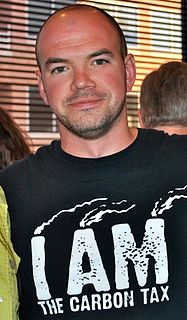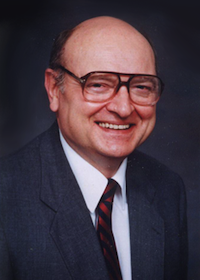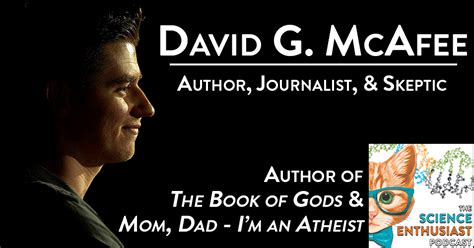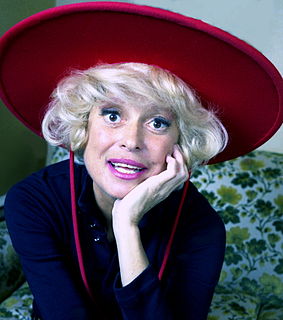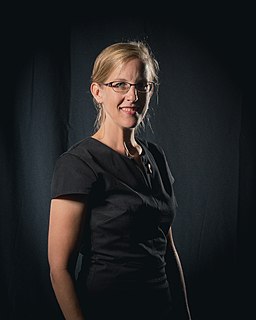A Quote by Tim DeChristopher
It wasn't until I started reading the history of religion that I understood that the definition of Christianity has shifted in many different directions over time, and the mainstream view today certainly doesn't have any exclusive ownership of what being a Christian means. Realizing that freed me to use the terminology without needing to be tied down to it.
Quote Topics
Any
Being
Certainly
Christian
Christianity
Definition
Different
Different Directions
Directions
Down
Exclusive
Freed
History
Mainstream
Many
Me
Means
Needing
Over
Ownership
Reading
Realizing
Religion
Shifted
Started
Started Reading
Terminology
The History Of
Tied
Time
Today
Understood
Until
Use
View
Without
Related Quotes
My spiritual path has largely been Christianity - a label that I embraced and then rejected and have partially embraced again, as my understanding of Christianity has changed over time. When I accepted the mainstream, dogmatic definition of Christianity there came a point when I had to say, "Well, if that's what a Christian is, I'm not one."
If the Christian church is to move responsibly towards the future, it must restore or renew its ties with its past. Contemporary Catholic and Protestant radicals want to claim that Christianity means whatever Christian today happen to believe and practice, be it pantheism, unitarianism, or sodomy. The Christian faith has suffered immeasurable harm because of the tendency of people to use the word Christian in a careless and non-historical way. Nothing in this argument would preclude liberal Protestants and Catholics from developing and practicing any religion they like.
Christians have always tended to transform the Christian Revelation into a Christian religion. Christianity is said to be a religion like any other or, conversely, some Christians try to show that it is a better religion than the others. People attempt to take possession of God. Theology claims to explain everything, including the being of God. People tend to transform Christianity into a religion because the Christian faith obviously places people in an extremely uncomfortable position that of freedom guided only by love and all in the context of God's radical demand that we be holy.
Under fascism, citizens retain the responsibilities of owning property, without freedom to act and without any of the advantages of ownership. Under socialism, government officials acquire all the advantages of ownership, without any of the responsibilities, since they do not hold title to the property, but merely the right to use it -- at least until the next purge. In either case, the government officials hold the economic, political and legal power of life or death over the citizens.
Without cultural indoctrination, all of us would be atheists. Or, more specifically, while many may dream up their own gods as did our ancestors, they would certainly not be ‘Christian’ or ‘Jewish’ or ‘Muslim’ or any other established religion. That’s because, without the texts and churches and familial instruction, there are no independent evidences that any specific religion is true. Outside of the Bible, how would one hear of Jesus? The same goes for every established religion.
Suddenly, I saw it in a new way, as a picture that offered me a new view, free of all the conventional criteria I had always associated with art. It had no style, no composition, no judgment. It freed me from personal experience. For the first time, there was nothing to it: it was pure picture. That's why I wanted to have it, to show it - not use it as a means to painting but use painting as a means to photography.
I have a friend who lives in Los Angeles. In past conversations, we've discussed the differences between being a Christian in Nashville and being a Christian in L.A. In Nashville the question is not, "are you a believer?" The question is "where do you go to church?" My friend always used to tell me that if you decide to be a Christian in L.A., you have to be really serious about the decision you are making because you will be the minority. And Christianity is so exclusive. It's not popular to believe that there's only one way to Heaven.
I'm a werewolf trapped in a human body." "Well, yeah, that's kind of the definition." "No, really. I'm trapped." "Oh? When was the last time you shape-shifted?" "That's just it - I've never shape-shifted." "So you're not really a werewolf." "Not yet. But I was meant to be one, I just know it. How do I get a werewolf to attack me?" Stand in the middle of a forest under a full moon with a raw steak tied to your face, holding a sign that says, 'Eat me; I'm stupid'?
Religion is much more than language, but to be Christian does mean speaking Christian for most people. The language many of us use has contributed to the crisis in Christianity in North America. Traditional Christian language is becoming less familiar to millions of people. The language is frequently misunderstood by people.
America is the one place in the world where I just innately understood [that] South Africa and the United States of America have a very similar history. It's different timelines, but the directions we've taken and the consequences - dealing with the aftermath of what we consider to be democracy, and realizing that freedom is just the beginning of the conversation, that's something I've learned.
